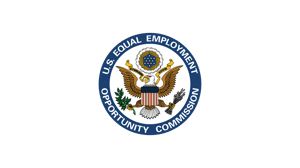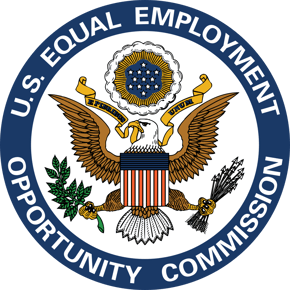
EEOC Issues Updated COVID-19 Technical Assistance
PARTNER SPOTLIGHT
Dealer Management System, Computer Technology, Media/Advertising, Automotive Auction, F & I/Aftermarket Products, Automotive Technology Training & Compliance
 A NHADA Gold PARTNER
A NHADA Gold PARTNERComputer Technology, Automotive Shop Equipment, Environmental Services
 A NHADA Platinum PARTNER
A NHADA Platinum PARTNERF & I/Aftermarket Products, Automotive Technology Training & Compliance, Environmental Services
.png?width=150&name=corp_logo_horz_on_light_with_trademark_symbol_1200w%20(002).png) A NHADA Diamond PARTNER
A NHADA Diamond PARTNERWASHINGTON – The U.S. Equal Employment Opportunity Commission (EEOC) posted updated and expanded technical assistance related to the COVID-19 pandemic, addressing questions arising under the federal equal employment opportunity (EEO) laws. The EEOC also posted a new resource for job applicants and employees, explaining how federal employment discrimination laws protect workers during the pandemic. These publications are provided to help employees and employers understand their rights and responsibilities at work during the pandemic.
The expanded technical assistance provides new information about how the Americans with Disabilities Act (ADA) and the Genetic Information Nondiscrimination Act (GINA) apply when an employer offers incentives for employees to provide documentation or other confirmation of vaccination when an employee gets a vaccine in the community or from the employer or its agent. The technical assistance answers COVID-19 questions only from the perspective of the EEO laws. Other federal, state, and local laws come into play regarding the COVID-19 pandemic for employers and employees.
The updated technical assistance released today addresses frequently asked questions concerning vaccinations in the employment context,” said EEOC Chair Charlotte A. Burrows. “The EEOC will continue to clarify and update our COVID-19 technical assistance to ensure that we are providing the public with clear, easy to understand, and helpful information. We will continue to address the issues that were raised at the Commission’s recent hearing on the civil rights impact of COVID-19.”
The key updates to the technical assistance are summarized below:
- Federal EEO laws do not prevent an employer from requiring all employees physically entering the workplace to be vaccinated for COVID-19, so long as employers comply with the reasonable accommodation provisions of the ADA and Title VII of the Civil Rights Act of 1964 and other EEO considerations. Other laws, not in EEOC’s jurisdiction, may place additional restrictions on employers. From an EEO perspective, employers should keep in mind that because some individuals or demographic groups may face greater barriers to receiving a COVID-19 vaccination than others, some employees may be more likely to be negatively impacted by a vaccination requirement.
- Federal EEO laws do not prevent or limit employers from offering incentives to employees to voluntarily provide documentation or other confirmation of vaccination obtained from a third party (not the employer) in the community, such as a pharmacy, personal health care provider, or public clinic. If employers choose to obtain vaccination information from their employees, employers must keep vaccination information confidential pursuant to the ADA.
- Employers that are administering vaccines to their employees may offer incentives for employees to be vaccinated, as long as the incentives are not coercive. Because vaccinations require employees to answer pre-vaccination disability-related screening questions, a very large incentive could make employees feel pressured to disclose protected medical information.
- Employers may provide employees and their family members with information to educate them about COVID-19 vaccines and raise awareness about the benefits of vaccination. The technical assistance highlights federal government resources available to those seeking more information about how to get vaccinated.
The new resource for job applicants and employees provides basic information about how federal employment discrimination laws help workers who are being harassed; who need extra protection against getting sick; who are not being allowed to work; or who need a modification of their employer’s COVID-19 safety requirements.
These two publications follow an EEOC hearing on April 28 on the impact of the COVID-19 pandemic on civil rights in the workplace at which the EEOC heard from a wide range of experts. They were prepared prior to the CDC’s new guidance for fully vaccinated individuals issued on May 13, 2021, and do not specifically address that new guidance. As new developments occur, the EEOC will consider any impact they may have on EEOC’s COVID-19 technical assistance and will provide additional updates and assistance to the public as needed.


















.png?width=150&name=Ally_Final%20Logos%20and%20Pairings_11.14.2018-01%20(2).png)


-2.png?width=150&name=Wipfli%20Logo%20Blue%20RGB%20(1)-2.png)


.jpg?width=150&name=NHADA_Partner_FTR_Img_NHADA_Insurance%20(1).jpg)


.jpg?width=150&name=NHADA_Partner_FTR_Img_JMA(1).jpg)


